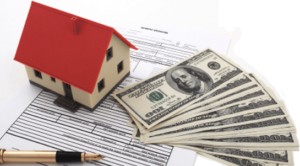What is the difference between “pre-qualified” and “pre-approved”?
A prequalification consists of a discussion between a home buyer and a loan officer. The loan officer collects basic information regarding the customer’s income, monthly debts, credit history and assets, and then uses this information to calculate an estimated mortgage amount for the home buyer. The prequalificat ion is not a full mortgage approval, but estimates what a home buyer can afford.
ion is not a full mortgage approval, but estimates what a home buyer can afford.
A pre-approval, on the other hand, is a comprehensive approach using basic information as well as electronic credit reporting. Pre-approvals, in most cases, are true mortgage commitments. The lender commits to financing your home and indicates the total mortgage amount available to you.
What types of mortgage programs are offered?
Currently there are over 50 different mortgage products available, including: 15, 20 and 30-year fixed rate loans, adjustable rate loans, new construction financing, VA and FHA loans, 5 and 7-year balloon loans and many more
How long does it take to process a mortgage application?
Usually about 45 to 60 days, although it can take as few as seven days and as long as 90 days for some transactions. The actual time depends on how quickly the lender can get an appraisal of the property, a credit report and verification of employment and bank accounts.
What documents will I have to provide?
Be prepared to provide verification of income (including a pay stub and recent tax returns), bank account numbers and details on your long-term debt (credit cards, auto loans, child support, etc.). If you’re self-employed you may also be required to provide financial statements for your business.
In recent years, lenders have been required to obtain more specific information from borrowers in order to package and sell loans to investors. If you were lending someone such a large amount of money, you’d want detailed financial information.
Could anything delay approval of my loan?
If you provide the lender with complete, accurate information, everything should go smoothly.
You may face a delay if the lender discovers credit problems – a history of late payments or nonpayment of debts, or a tax lien. You may then be required to submit additional explanations or clarifications.
You should also be sure to notify your lender if your personal or financial status changes between the time you submit an application and the time it’s funded. If you change jobs, get an increase (or decrease) in salary, incur additional debt or change your marital status, let the lender know promptly. You may be delayed if the home you selected fails to appraise for the agreed purchase price.
What’s included in my house payment?
Principal and interest on your loan. Depending on the terms of your loan, the payment also may include hazard (homeowners) insurance, mortgage insurance and property taxes.
Can I pay those other things separately?
Not if it’s a FHA or VA-insured loan. With most other loans, you can pay your own taxes and insurance if your borrowed no more than 80 percent of the purchase price or appraised value of your home. Check with your lender to be sure.
What do the closing costs include?
Closing costs cover processing and administration of your loan. In addition to a loan fee, you’ll usually be asked to prepay interest charges, to cover the partial month in which you close, and impounds for property taxes, hazard insurance and mortgage insurance.
When do my mortgage payments start?
Usually about 30 days after closing. The actual date of your first payment will be included in your closing documents.
Whether looking to purchase or sell a home or curious about investment properties in Bergen County, New Jersey, Alper will provide a complete overview of the market for you. Please feel free to contact Alper at your convenience.
